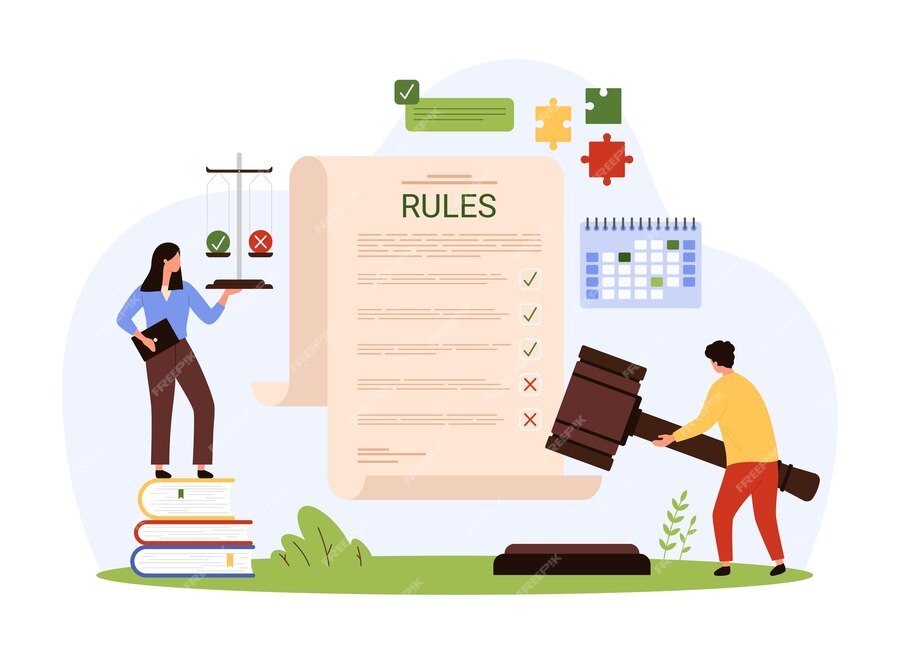Non-compete agreements are legal contracts that prevent employees or business partners from engaging in activities that compete with their former employer or business. These agreements are common in various industries but can raise many questions about their enforceability. This section simplifies the concept and provides insights into their validity.
What is a Non-Compete Agreement?
A non-compete agreement is a legally binding contract designed to restrict individuals from working with competitors or starting a similar business within a specific time and geographic area after leaving a company.
Key Components of Non-Compete Agreements:
- Time Limit: Specifies how long the agreement will remain in effect.
- Geographic Scope: Defines the locations where restrictions apply.
- Scope of Activities: Details the types of work or business activities prohibited.
Example: An agreement might prevent a marketing manager from joining a competitor in the same city for one year after leaving the company.
Why Do Employers Use Non-Compete Agreements?
Employers use non-compete agreements to protect their business interests, such as trade secrets, client relationships, or proprietary methods. These agreements help ensure that valuable knowledge or skills gained by employees are not used against the company.
Advantages for Employers:
- Safeguards confidential information.
- Maintains competitive advantage.
- Retains valuable employees.
Tips for Employees:
- Carefully review the agreement before signing.
- Consult a legal expert to understand the implications.
- Negotiate terms that seem overly restrictive.
Are Non-Compete Agreements Enforceable?
The enforceability of non-compete agreements depends on several factors, including the laws of the jurisdiction where they are applied. Courts generally evaluate whether the agreement is reasonable and protects legitimate business interests without being overly restrictive.
Factors Courts Consider:
- Reasonableness: Are the time and geographic limits fair?
- Business Necessity: Is the agreement protecting essential interests?
- Public Policy: Does it unfairly limit employment opportunities?
Factors Influencing Enforceability
| Factor | Example | Impact on Enforceability |
|---|---|---|
| Time Limit | 1-year restriction | Likely to be enforceable |
| Geographic Scope | Within one city | More enforceable than nationwide |
| Activity Scope | Prohibiting similar roles | Reasonable if narrowly defined |
State-by-State Variations
Non-compete agreements are treated differently across states. For example:
Strict Enforcement:
- Texas
- Florida
Limited Enforcement:
- California (generally void except in specific cases)
- North Dakota
Practical Tip: Research your state’s laws or consult an attorney to determine the enforceability of a non-compete agreement in your area.
Alternatives to Non-Compete Agreements
Some businesses prefer to use less restrictive agreements to protect their interests. These include:
1. Non-Disclosure Agreements (NDAs): Focus on keeping proprietary information confidential.
2. Non-Solicitation Agreements: Prevent former employees from soliciting clients or staff.
3. Intellectual Property Agreements: Ensure that innovations or creations belong to the company.
Comparison: Non-Compete vs. Alternatives
| Agreement Type | Purpose | Restrictiveness |
|---|---|---|
| Non-Compete | Prevent competition | High |
| NDA | Protect confidential info | Low |
| Non-Solicitation | Stop client/staff poaching | Moderate |
Expert Insight
Legal expert Jane Doe emphasizes that non-compete agreements are most effective when they are customized to address genuine business needs. Overly broad agreements often fail in court.” This highlights the importance of balancing protection with fairness.
Tips for Employers and Employees
For Employers:
- Clearly define the agreement’s Scope.
- Avoid overly broad restrictions.
- Regularly update agreements to align with current laws.
For Employees:
- Seek clarification on unclear terms.
- Negotiate for fairer conditions if needed.
- Understand potential consequences before leaving a role.
Examples of Legal Challenges
Case Study 1: A software engineer in California challenged a non-compete clause, arguing that it unfairly restricted job opportunities. The court voided the agreement due to state laws favoring employee mobility.
Case Study 2: A marketing executive in Texas was prohibited from joining a competitor within six months. The court upheld the agreement, citing its reasonable duration and geographic Scope.
Conclusion
Non-compete agreements can be a useful tool for businesses but must be crafted carefully to ensure enforceability. Employees should understand their rights and seek legal guidance to avoid unexpected limitations. By balancing protection and fairness, non-compete agreements can serve both parties effectively.

